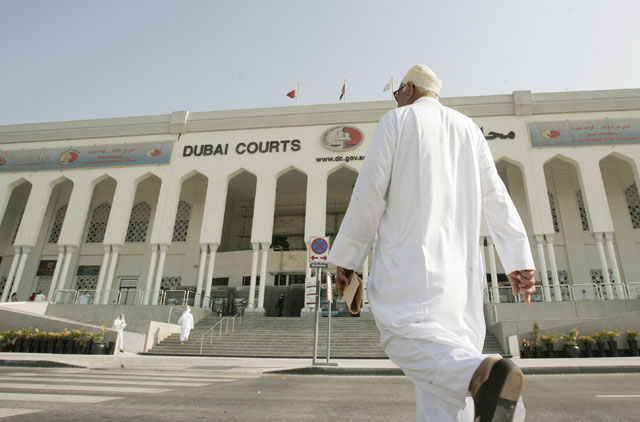Dubai: A new law issued on Sunday guarantees everyone’s equality before courts without any discrimination and upholds litigants’ right to defend in all stages of the investigation and trial.
The Law No.13 of 2016 on the Judicial Authority in Dubai was issued by His Highness Shaikh Mohammad Bin Rashid Al Maktoum, Vice-President and Prime Minister of the UAE and Ruler of Dubai.
It aims to regulate the functioning of the judicial authority, affirms the principles of independence of judiciary and its separation from other authorities, be in harmony with judicial-related international standards, guarantees rights, freedoms, rule of law, fair justice, transparency, equality and ensure the efficiency and proper performance of judicial agencies.
The law also upholds the independence of judges with no authority over them in performing their duties other than the law and everyone’s right to litigate and be treated fairly in all judicial proceedings. It guarantees everyone’s equality before courts with no discrimination and litigants’ right to defend in all stages of the investigation and trial.
According to the law, no case shall be filed against any member of the judiciary in relation to his job without satisfying the terms and conditions prescribed in the law and no verdict issued by the judicial council or judicial authority shall be annulled without challenging it in the cases stated in the law.
The law applies on Dubai Judicial Council, which by virtue of the newly issued law, shall have a chairman, deputy chairman and a number of members to be selected by a decree issued by Shaikh Mohammad.
The members include president of the Court of Cassation, president of the Court of Appeal, president of the Court of First Instance, public prosecutor and director of Judicial Inspection Department.
The Judicial Council aims to achieve Dubai’s vision and its strategic goals of developing the justice sector, ensuring the independency of the judiciary, establishing values and ethics of judicial work and ensuring the transparency and efficiency of judiciary.
The council also aims to promote the principles of justice, equality and rule of law and contribute to realising the sustainable development through providing a just, transparent and effective judiciary.
The council shall have a number of competences, including setting general policies to develop judiciary and oversee their implementation, proposing and considering draft laws, regulations related to the judicial authority, and suggesting the council and Judicial Inspection Department’s annual draft budgets and submit them to the Ruler of Dubai for approval.
The law also applies on Dubai courts, which according to the law shall be organsied as follows: the Court of Cassation, Court of Appeal, and Court of First Instance where each of which shall deal with all cases referred to them in accordance with the law.
As per the law, no member of judiciary shall be arrested or put under custody or investigation or even bring a case against him without prior approval by Shaikh Mohammad at the request of the public prosecutor.
However, in case any member of the judicial authority got involved in any crime, he/she shall be arrested and put under custody by a decision to be issued by the public prosecutor on the condition that the prosecutor shall submit the matter to Shaikh Mohammad within 24 hours.
The law also applies on the Judicial Inspection Department.
The newly issued law replaces the law No. 2 of 1992 pertaining to the judicial inspection, the law No. 3 of 1992 on the formation of courts, law No.6 of 1992 on the setting up of Judiciary council and the law No. 8 of 1992 on the public prosecution.
The law annuls any article that contradicts its provisions.
All effective regulations and laws to be amended, annulled or replaced by the law shall remain in place until the new law’s regulations are issued.
The law, to be published in the official gazette, is deemed effective from the date of its publication.













